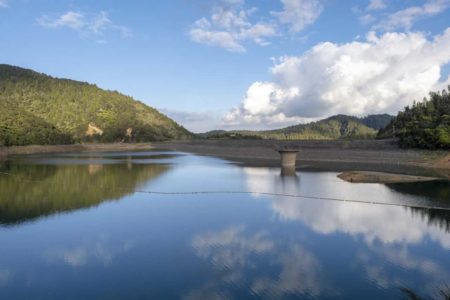
Auckland Council has voted to adjust the city’s water restrictions.
From December 14 residents will be able to use handheld hoses fitted with trigger nozzles, but people are still urged to use water wisely as the shortage continues.
Auckland experienced its worst drought on record between November last year and May this year, receiving only 60 per cent of the normal rainfall.
Stage one water restrictions were implemented in May for the first time since the drought of 1993-1994 as a result.
Mayor Phil Goff says Aucklanders have been “fantastic” in their response to the call to conserve water.
Residents and businesses have saved about seven billion litres since restrictions were put in place, he says.
“However, with storage dams still 19 per cent below average for this time of year we’re not out of the woods yet.
“While we’ve eased restrictions and people can use handheld trigger hoses, we’re asking Aucklanders to carry on with their good water-saving habits.
“Watercare and the council have invested strongly, spending $224 million to increase water supply.
“We’re already taking 25 million litres a day more from the Waikato River, and by mid next year we will take a further 50 million litres through the expansion of our Tuakau treatment plant.
“A further five million litres a day is coming from the new Pukekohe plant we opened last Friday, with six million to 12 million litres extra from the Hays Creek dam starting early January.
“More supply and greater water conservation should see us through the summer, but if serious drought continues and demand increases radically, restrictions will have to be put back in place.”
Watercare liaison councillor Linda Cooper says the adjustment will offer some relief to Aucklanders. She hopes people follow them wisely.
“Taking care of a garden and growing fruit and vegetables is important for many Aucklanders’ wellbeing, as is carrying out those summer around-the-home tasks like water blasting and house washing.
“Using trigger nozzles and continuing to use water carefully and sparingly is vitally important.
“However, should water use get out of control, we may need to look at reimposing stronger restrictions, so all of us need to do our part to keep saving water.”
Adjusted restrictions allow for controlled outdoor water use.
They enable people to water their gardens, top up pools, flush boat motors and wash their homes and cars, but only using a hand-held hose fitted with a trigger nozzle.
Sprinklers and residential irrigation systems are not permitted. Home water blasters with trigger nozzles can also be used.











